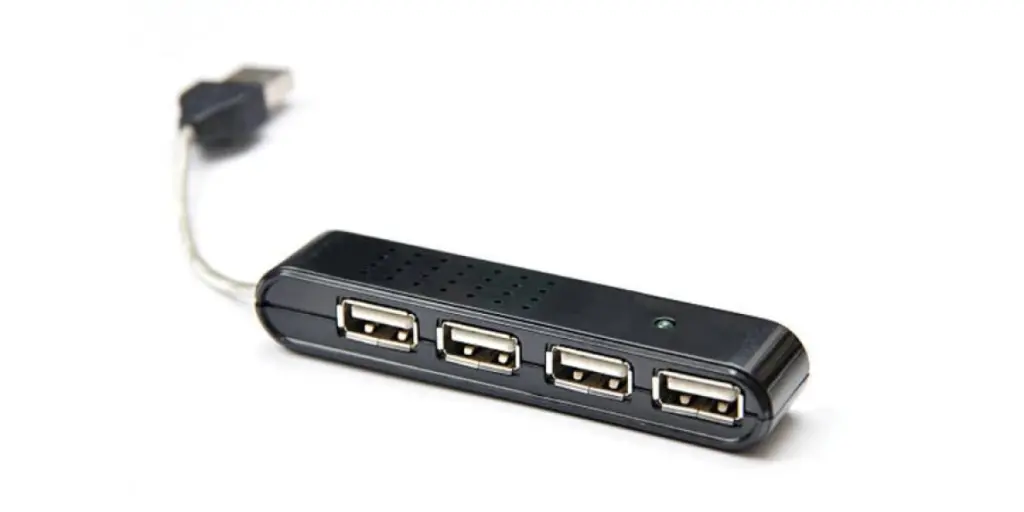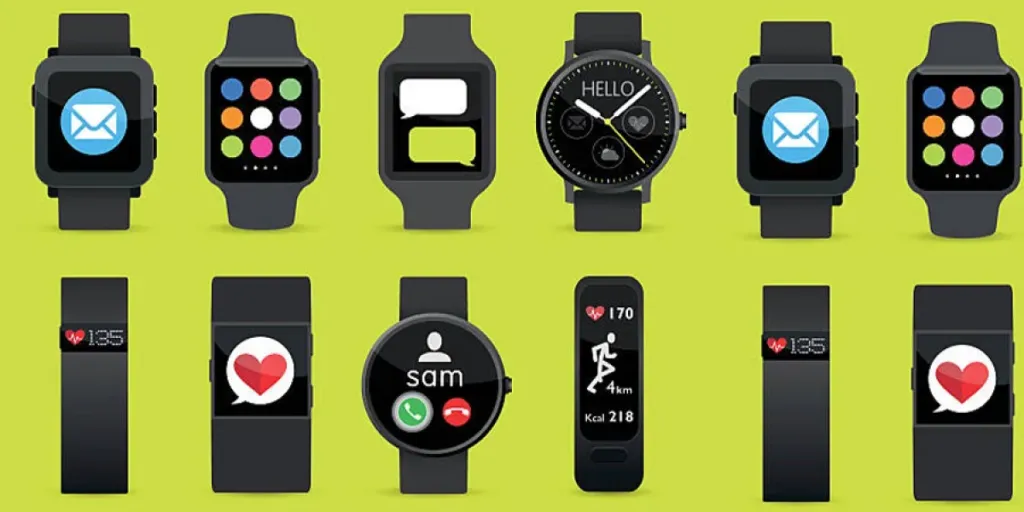In the dynamic landscape of technology, USB hubs have emerged as indispensable tools for enhancing connectivity and efficiency in various business environments. As 2024 unfolds, these devices continue to evolve, offering more sophisticated features to meet the growing demands of advanced computing systems. USB hubs, essentially acting as multiport docking stations, enable the connection of multiple peripherals to a single USB port, significantly expanding the capabilities of computers and other digital devices. Their utility ranges from simple data transfer to powering high-end gadgets, making them a vital component in the toolkit of any organization striving for technological adeptness. This evolution marks a pivotal moment in the tech industry, highlighting the USB hub’s role as a cornerstone in modern digital infrastructure.
Table of Contents:
1. USB hub market dynamics in 2024
2. Critical factors in USB hub selection
3. Top USB hub models and their features
4. Conclusion
USB hub market dynamics in 2024
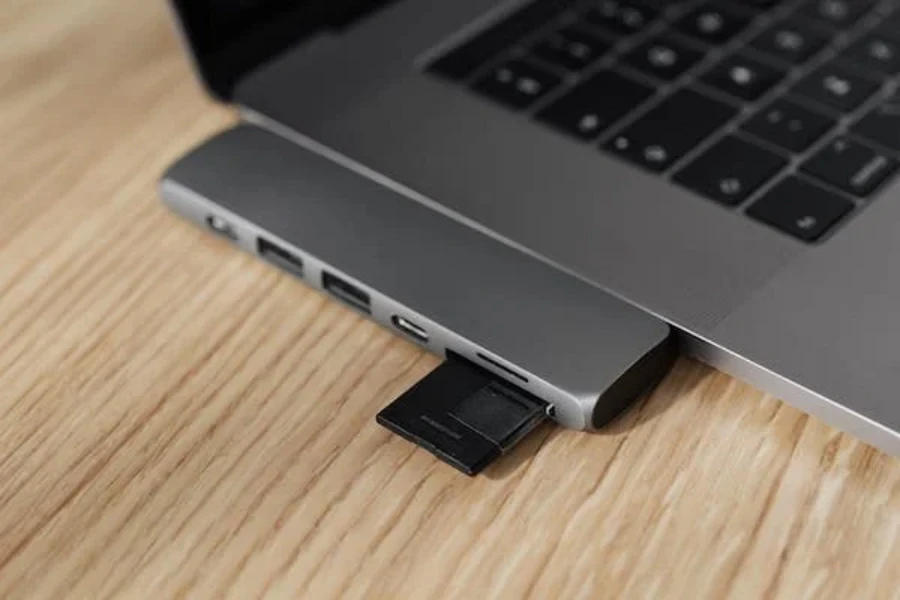
In 2024, the USB hub market is experiencing a significant growth trajectory. Experts currently value the market at approximately USD 1511.43 million, with projections indicating a robust expansion. The market is expected to achieve a Compound Annual Growth Rate (CAGR) of 9.14%, suggesting a dynamic and rapidly evolving sector. This growth is reflective of the increasing demand for USB hubs across various industries and consumer segments.
Trends shaping the USB hub industry
The trends shaping the USB hub industry are diverse and driven by both technological advancements and shifts in consumer preferences. A key factor in this growth is the integration of USB-C technology, which has led to the development of more efficient hubs capable of higher data transfer speeds and power outputs. This is particularly relevant in professional settings where multiple high-power devices require connectivity.
Another significant trend is the rising demand for portable and well-designed USB hubs. With the prevalence of remote work and mobile offices, professionals seek compact, lightweight hubs that do not compromise on performance. Products like the Hiearcool USB C 7-in-1 are gaining traction for their portability, addressing the needs of the modern workforce.
Additionally, the market is witnessing a demand for USB hubs with a variety of port types to cater to different devices and user preferences. For instance, the Yeolibo 9-in-1 USB C Multiport hub offers a comprehensive solution with its combination of USB 3.0 ports, USB-C ports, and card readers, meeting diverse connectivity needs.
Impact of technological innovations
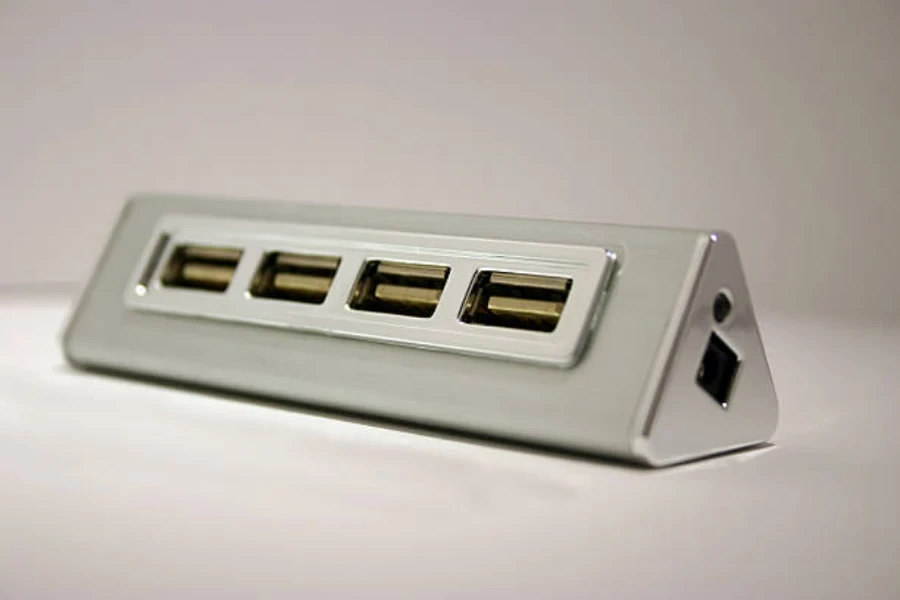
Technological innovations continue to transform USB hub features and capabilities. The introduction of Ethernet connectivity in models such as the EZQuest USB-C Multimedia 8 Port addresses the need for stable internet connections in professional environments. This feature is particularly beneficial for businesses reliant on cloud-based applications and services, ensuring uninterrupted access and data transfer.
In summary, the USB hub market in 2024 is characterized by a focus on high-performance, versatile connectivity solutions that cater to the evolving needs of the professional sector. With advancements in USB-C technology, an emphasis on portability and design, and the integration of diverse port types and features, USB hubs are becoming an increasingly vital component in the technological infrastructure of businesses. These developments not only reflect the current market dynamics but also set the stage for future innovations in the industry.
Critical factors in USB hub selection
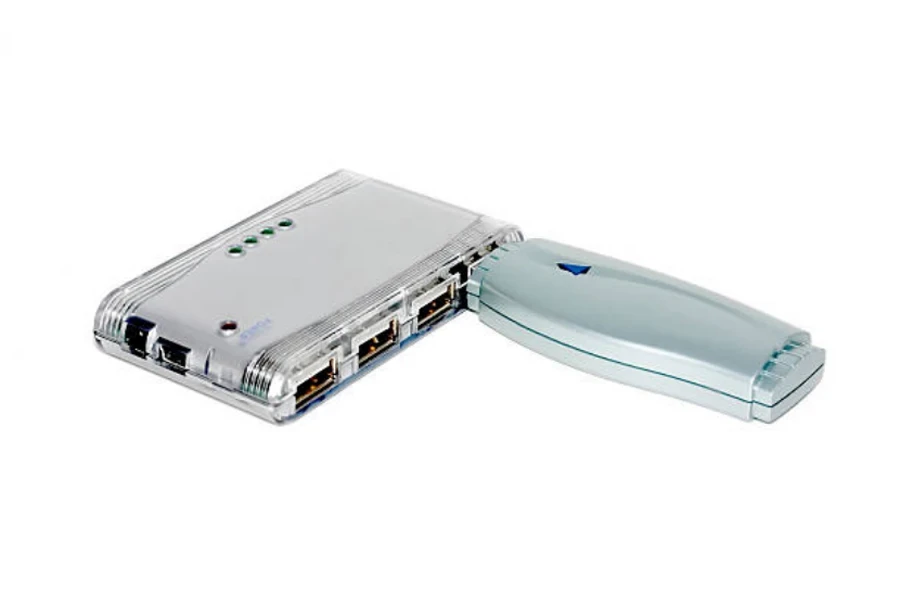
In the realm of USB hubs, several critical factors play a pivotal role in determining their suitability for various business applications. These factors include portability and design, connectivity and speed, and durability and material quality.
Evaluating portability and design
The importance of portability and design in USB hubs cannot be overstated, especially in an era where flexibility and mobility are paramount. The Hiearcool USB C 7-in-1 hub stands as a prime example of this trend, offering a compact and lightweight design that does not compromise on functionality. Its slim profile and ease of transport make it an ideal choice for professionals who require a portable solution for connecting multiple devices on the go. The design of a USB hub also plays a crucial role in its usability and integration into various workspaces, with sleek and minimalistic designs often being preferred for their ability to blend seamlessly into professional environments.
Assessing connectivity and speed
Connectivity and speed are the cornerstones of a USB hub’s functionality. In today’s fast-paced business world, the ability to transfer data quickly and efficiently is a necessity. The Anker PowerExpand 8-in-1 USB-C PD 10Gbps Data Hub exemplifies this need with its support for a 60 Hz refresh rate on 4K monitors, ensuring smooth and lag-free performance. This feature is particularly beneficial for tasks that require high-resolution displays, such as graphic design or video editing. Additionally, the variety of connectivity options available in a USB hub, including USB-A, USB-C, HDMI, and Ethernet ports, cater to a wide range of devices and applications, making them versatile tools in the technological arsenal of businesses.
Durability and material quality
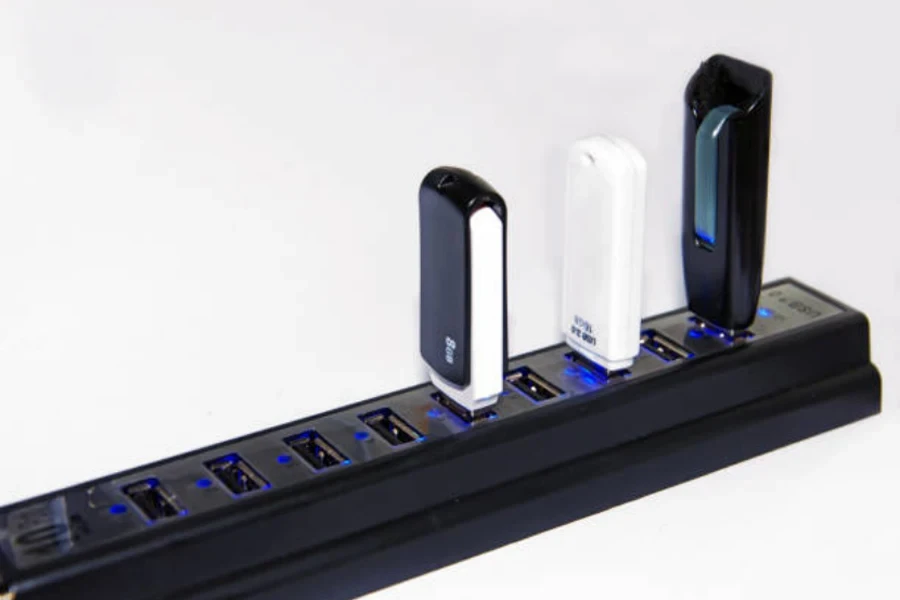
The durability and material quality of USB hubs are crucial for ensuring their longevity and reliability. The Anker 341 USB C 7-in-1, for instance, is noted for its robust build quality, capable of withstanding the rigors of daily use. High-quality materials not only extend the lifespan of these devices but also provide a sense of reliability and trustworthiness, which is essential for businesses that depend on these tools for critical operations. The choice of materials also impacts the overall aesthetic of the hub, with premium materials like aluminum offering a more professional appearance compared to plastic counterparts.
In conclusion, the selection of USB hubs for professional use involves a careful consideration of portability and design, connectivity and speed, and durability and material quality. These factors collectively determine the effectiveness of a USB hub in meeting the diverse needs of modern businesses. As technology continues to evolve, these criteria will remain central to the decision-making process, guiding professionals in choosing the right USB hubs that align with their specific requirements and operational contexts.
Top USB hub models and their features
In the competitive landscape of USB hubs, certain models stand out for their exceptional features and market position. Among these, the Anker PowerExpand 8-in-1, Yeolibo 9-in-1 USB C Multiport, and Hiearcool USB C 7-in-1 are notable for their unique attributes, catering to diverse professional needs.
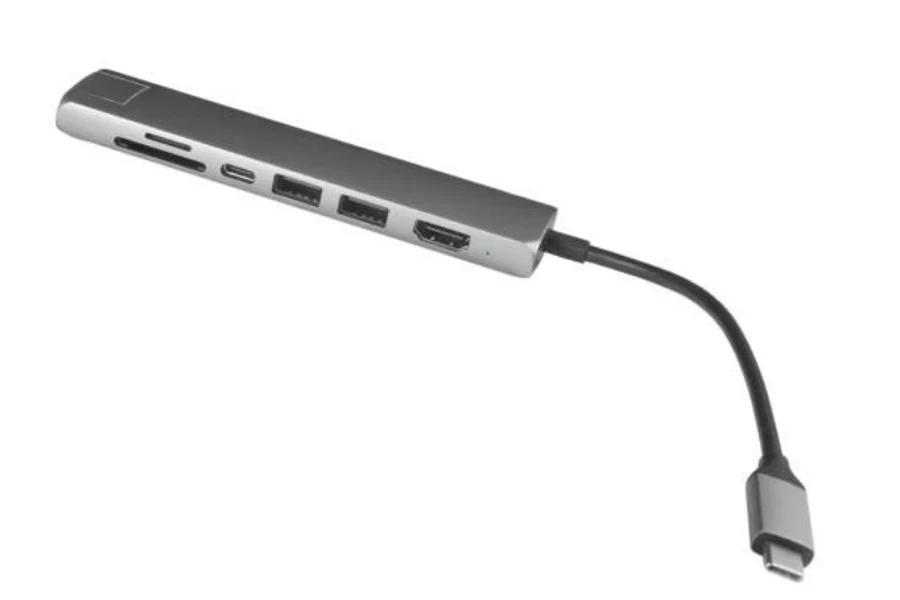
Anker PowerExpand 8-in-1: A market leader
The Anker PowerExpand 8-in-1 USB-C PD 10Gbps Data Hub is a testament to innovation and functionality in the USB hub market. Its standout feature is the HDMI port that supports a 60 Hz refresh rate on 4K monitors, a significant advancement over the standard 30 Hz offered by many competitors. This capability makes it an ideal choice for tasks that require high-resolution displays and smooth visual performance. Additionally, the hub boasts a range of ports, including two USB-A 3.2 Gen 2, one USB-C 3.2 Gen 2, and an SD card slot, among others. This variety ensures compatibility with a wide range of devices, making it a versatile tool for professionals. The hub’s design is both practical and sleek, suitable for both permanent desk setups and on-the-go use.
Yeolibo 9-in-1 USB C multiport: Best value hub
The Yeolibo 9-in-1 USB C Multiport distinguishes itself in the market through its combination of affordability and a wide array of ports. It features four USB 3.0 ports, two USB C ports, an HDMI port, and Micro SD and SD card readers, making it a comprehensive connectivity solution. Its affordability does not come at the expense of quality, as the hub maintains high data transfer speeds and reliable performance. The one-piece aluminum shell adds to its durability, while its lightweight design enhances its portability. This hub is particularly appealing to businesses looking for a cost-effective yet comprehensive USB hub solution.
Hiearcool USB C 7-in-1: Ultimate portability
The Hiearcool USB C 7-in-1 hub is designed with portability as its core feature. Its compact size, akin to a pack of gum, and lightweight build, under two ounces, make it an ideal choice for professionals who are frequently on the move. Despite its small footprint, it does not compromise on functionality, offering two USB 3.0 ports, a USB-C port, an HDMI port, and Micro SD and SD card readers. This combination of portability and functionality makes it a preferred choice for those who need a reliable connectivity solution that can easily fit into a laptop bag or pocket.
In conclusion, these three USB hubs – the Anker PowerExpand 8-in-1, Yeolibo 9-in-1 USB C Multiport, and Hiearcool USB C 7-in-1 – each bring unique features to the table, catering to different aspects of professional use. Whether it’s the high-performance capabilities of the Anker PowerExpand, the value-for-money proposition of the Yeolibo, or the ultra-portability of the Hiearcool, these models exemplify the advancements and diversity in the current USB hub market. Their features and design choices reflect the evolving needs of the professional sector, offering solutions that enhance productivity and connectivity in various work environments.
Additional insights
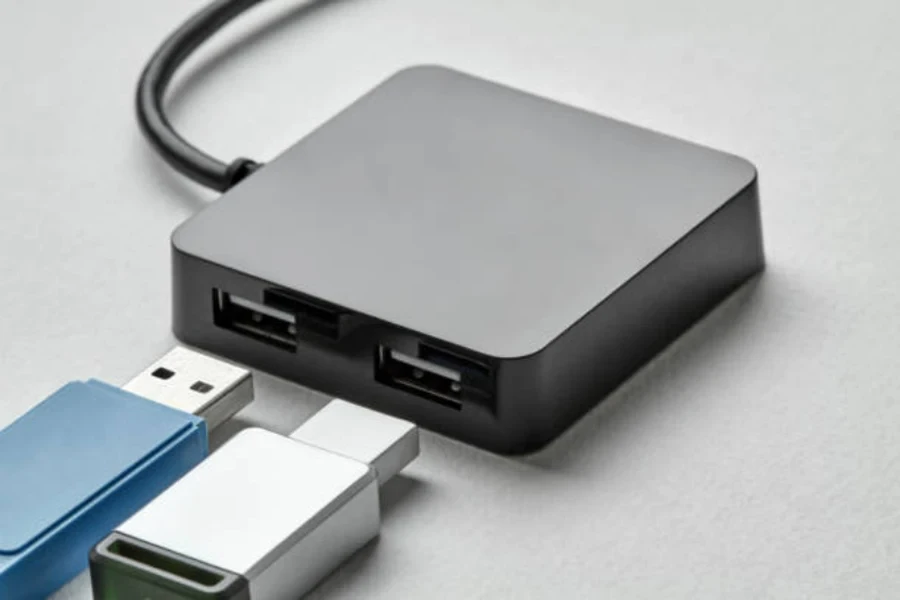
In addition to the previously mentioned USB hubs, several other models stand out in 2024 for their exceptional features and performance. These include:
Anker 7-in-1 USB-C Hub (A83460A2): This hub is recognized as the best overall USB-C hub for its combination of value, build quality, and functionality. It offers a mix of legacy and newer ports, including two 5Gbps USB-A ports, a 5Gbps USB-C connection for data, and a second USB-C port for power input, supporting up to 85W. The HDMI port supports 4K/30Hz video, making it standard for the category. Its premium metallic design and efficient cooling under load make it a top choice for professionals.
Yeolibo 9-in-1 USB-C Hub (RU9A): Known as the best budget USB-C hub, Yeolibo offers an impressive array of ports at an affordable price. It includes three USB 3.0 (5Gb/s) Type A ports, a USB 2.0 Type A port, a USB-C (5Gb/s) port, a USB-C PD charging port rated at 100W, and an HDMI port. Additionally, it has microSD and SD slots capable of handling cards up to 2TB. Its detailed manual and well-rounded functionality make it an excellent choice for budget-conscious users.
Lasuney Triple Display USB Type C HUB: This hub is noted as the best premium USB-C hub, offering incredible port flexibility. It features two USB 3.0 ports, two USB 2.0 ports, two HDMI 1.2 ports (4K@30Hz), DisplayPort, gigabit ethernet, microSD/SD, and USB-C power input. The hub can replace many wired connections due to its ethernet support. However, it’s important to note that not all ports can be used simultaneously due to USB-C bus throughput limitations.
Cyber Acoustics DS-1000 Docking Station: As the best full-size USB-C docking station, this model works well with recent laptops, especially those with 11th-gen Core processors and above. It includes a pair of HDMI ports, four 5Gbps USB-A ports, gigabit ethernet, and additional USB-C ports. The dock supplies 90W of charging power to laptops and features a compact design.
Dockcase Smart USB-C Hub 10-in-1 Explorer Edition: This hub stands out for its detailed, informative LCD display, offering top-notch performance and an odd but competitive pricing scheme. It provides a detailed look at what devices are connected to each port and their capabilities, functioning more like a diagnostic device or USB multimeter.
IOGEAR Travel Pro USB-C Mini Dock (GUD3C460): Recognized as the best compact/travel USB-C docking station, this model is one of the smallest docks on the market. It minimizes desk clutter and is ideal for users who need a portable and efficient docking solution.
Ugreen 9-in-1 USB-C (Revodok) Docking Station CM615: This is the top pick for an upgraded DisplayLink dock, offering terrific price and value. It provides great display port flexibility and support for two 4K60 displays.
Sonnet Echo 13 Triple 4K Display Dock: As the best full-size USB-C DisplayLink dock runner-up, this dock supports three 4K60 displays and offers solid value with 20W of charging power for smartphones and 100W for laptops.
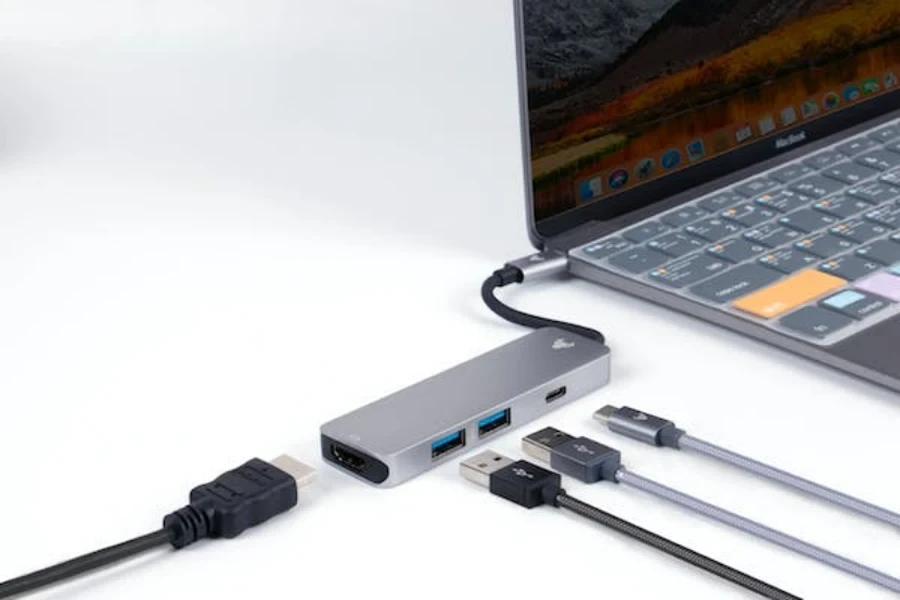
Each of these USB hubs and docking stations offers unique features and capabilities, catering to various professional needs and preferences. Whether it’s for high-speed data transfer, multiple display support, or compact travel-friendly designs, these models represent the best in the market for 2024.
Conclusion
The landscape of USB hubs in 2024 presents a diverse array of options, each catering to specific professional needs. For online retailers, understanding the critical factors of portability, connectivity, speed, and durability is essential in selecting the best products. Models like the Anker PowerExpand 8-in-1, Yeolibo 9-in-1 USB C Multiport, and Hiearcool USB C 7-in-1 exemplify the advancements in technology, offering solutions that balance performance with practicality. As the market continues to evolve, these insights will guide retailers in making informed decisions, ensuring they provide high-quality, versatile USB hubs that meet the dynamic demands of the professional sector.
